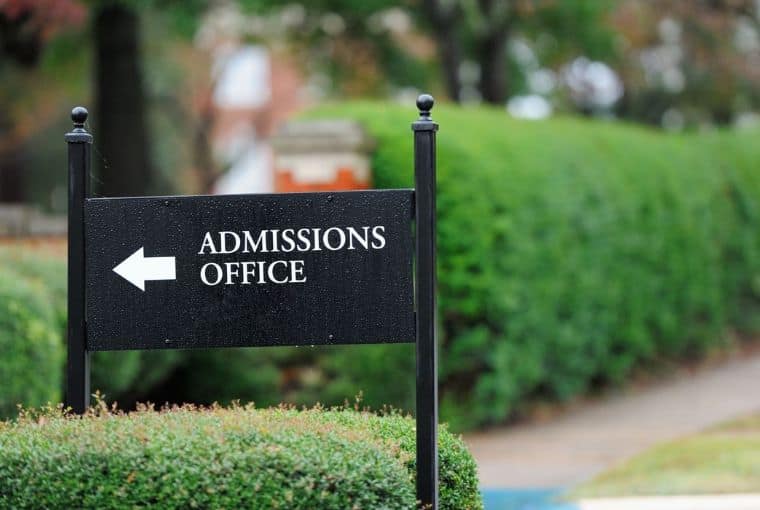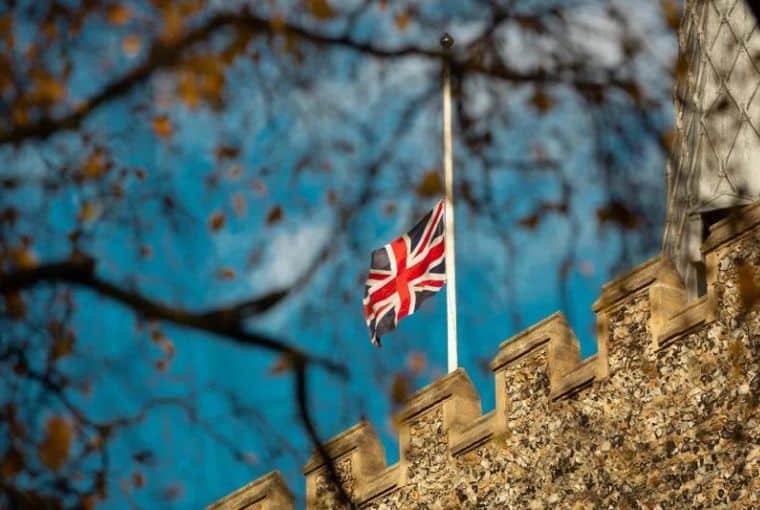
- Country Profile
- Student Life
- Education
- Requirements
- Costs
- FAQs
- prev
- next
Intro
Introduction to the UK for International Students: Study in UK Guide

The United Kingdom (UK) has a longstanding reputation for academic excellence, attracting over 605,130 international students annually. Home to the world’s oldest university in the English-speaking world, the UK is a top study destination known for its rich history, diverse culture, and prestigious educational institutions like the University of Oxford, the University of Cambridge, Imperial College London, and the University of Edinburgh.
Comprising four distinct nations—England, Scotland, Wales, and Northern Ireland—the UK offers a unique blend of tradition and modernity. As a global leader in education programs such as business, science, art, design, technology, management, law, and finance, the UK provides students with access to cutting-edge research facilities and expert faculty who are leaders in their fields. Its education system is highly regarded for its emphasis on critical thinking, independent study, and the practical application of knowledge, ensuring a well-rounded and enriching academic experience.
Moreover, the UK’s multicultural society and welcoming environment make it an attractive destination for students from around the world. The country's vibrant cities, such as London—a major global financial center—offer a rich tapestry of cultures, languages, and traditions, along with numerous cultural attractions, entertainment options, and recreational activities. International students can work up to 20 hours per week during school terms and full-time during holidays, making it a practical and rewarding choice for their education abroad.
Since the launch of the Prime Minister's initiative in 1999, the UK has dedicated its efforts to expanding opportunities for international students, solidifying its position as the second most popular study destination in the world, after the United States. The UK accounts for 8% of scientific research worldwide, further enhancing its appeal to students seeking a top-tier education in a dynamic and diverse environment.
Why do international students study in the UK?

The United Kingdom (UK) is one of the most favored destinations for international students, offering a blend of academic excellence, cultural richness, and career opportunities. The UK’s longstanding reputation for academic excellence is evident in its world-class education system, cutting-edge research facilities, and a history of producing some of the brightest minds, including 38 percent of Nobel Laureates and one in four world leaders.
International Students who study in UK benefit from exposure to a diverse cultural environment, with a multicultural society that fosters a global perspective and a sense of belonging. This vibrant and diverse community, along with the opportunity to learn from the brightest minds in the field, makes the UK an attractive study destination.
- Academic Excellence: The UK is renowned for its top-notch universities, which consistently rank among the best in the world. According to the QS World University Rankings 2023, institutions like the University of Cambridge, the University of Oxford, Imperial College London, and University College London are among the top 20 globally. With over 30 universities in the UK ranking among the top 200 globally, the country offers a high-caliber education across a wide range of subjects, ensuring that students receive a world-class education recognized and respected worldwide.
- Cutting-Edge Research and Innovation: The UK stands at the forefront of innovative research and emerging technologies, giving international students access to state-of-the-art research facilities and the opportunity to collaborate on groundbreaking research. With the third-largest output of scientific research globally and 91 British Nobel Prize winners, the UK provides an ideal environment for students aiming to expand their minds and skills, driving scientific and technological advancements.
- Flexible and Shorter Study Programs: Study in UK and benefit from shorter and more flexible study programs compared to other countries. Students can typically complete a Bachelor’s degree in three years and a Master’s degree in one year, allowing them to save on tuition fees and living expenses. With over 50,000 academic courses in more than 25 subject areas, British universities provide the flexibility to choose different subject modules and tailor studies to suit individual interests and career aspirations.
- Career Opportunities and Global Recognition: A British education equips students with the skills, knowledge, critical thinking, and global connections needed to advance their careers. The UK’s status as a global business and innovation hub, combined with high employability rates for graduates, provides students with ample career prospects and networking opportunities. Whether students choose to work in the UK or return to their home country, a degree from a British university opens many doors.
- Reasonable Fees and Quality Education: Studying in the UK offers a high-quality education at reasonable fees. International students pursuing undergraduate studies can expect to pay between £11,400 and £38,000 per year, with an average cost around £22,200. Postgraduate tuition fees range from £9,000 to £30,000, with an average cost of approximately £17,109 per year. These fees, coupled with the shorter study durations, make the UK an attractive and cost-effective option for obtaining internationally recognized qualifications.
- Advanced Language and Communication Skills: For students looking to improve their English proficiency, the UK provides an immersive environment for language learning. A high level of proficiency in English is highly valued in the global job market, making the UK an ideal destination for those seeking to enhance their language and communication skills.
- Living in the UK: The UK is one of the most desirable places to live, offering a high quality of life, excellent healthcare, transportation, and infrastructure. The country also boasts a higher environmental quality, social engagement, personal security, and opportunities for civic engagement compared to many other developed nations, making it a great place for international students to study and live.
Cultural Diversity in the United Kingdom

The United Kingdom (UK) is celebrated for its rich cultural diversity, offering international students a vibrant and inclusive environment that fosters cross-cultural understanding and personal growth. The UK’s multicultural society is a melting pot of traditions, languages, and customs, making it an exciting and welcoming place for international students to live and study. With London serving as a hub for many international students, the UK’s diverse community provides an immersive environment for students to learn about cultures from around the world, exchange ideas, and develop a global perspective. This exposure to diverse cultures and traditions is not only enriching but also essential for international students’ holistic development.
Living in the multicultural UK provides international students with exposure to new ideas, languages, and perspectives. Engaging with a diverse mix of people fosters open-mindedness and the ability to work effectively with individuals from various backgrounds. The UK’s multicultural environment also offers international students the opportunity to learn from different nationalities, exchange cultural insights, and feel comforted by the presence of others in similar situations. This exposure to diverse ideas, entertainment, fashion, music, and art from around the world enriches the educational experience and contributes to the personal and intellectual growth of international students.
The benefits of cultural diversity in the UK extend beyond the academic realm. International students have the opportunity to experience a wide range of international cuisines, with the UK being home to traditional restaurants offering food from various countries. This exposure to diverse cuisines not only provides a taste of home for international students but also allows them to explore and appreciate different culinary traditions. Additionally, the UK’s multicultural society is multilingual, with a vast range of languages spoken throughout the country. This multilingual environment creates a sense of inclusivity and belonging for international students, allowing them to feel at home in a diverse and welcoming society.
Post-Study Work Opportunities for International Students in the UK

Post-study work opportunities in the United Kingdom (UK) present a compelling reason for international students to choose the UK for higher education. The reinstatement of the two-year post-study work visa, known as the “graduate route” visa, allows international students to remain in the UK for up to two years after completing their undergraduate or master’s degree at an approved higher education institution. This provides them with the opportunity to gain practical work experience, seek employment, and further their careers in the UK. The reintroduction of this student visa has made the UK an attractive choice for international students who wish to start their careers in the country after completing their studies, offering them a valuable opportunity to gain work experience and explore career prospects in the UK job market.
The post-study work opportunities in the UK are not only beneficial for international students in terms of gaining practical work experience but also provide them with the chance to explore the vibrant and multicultural culture of the country. The UK’s diverse and inclusive environment, coupled with its vibrant cities and spectacular countryside, offers international students a well-rounded experience as they transition from their academic pursuits to professional endeavors. The work-life balance in the UK is highly regarded, allowing individuals to pursue their hobbies, travel, and enjoy a fulfilling lifestyle while also advancing their careers. This balance, combined with the opportunities for career growth and personal development, makes the UK an appealing destination for international students seeking to build a successful future after completing their studies.
The availability of post-study work opportunities in the UK aligns with the country’s status as a thriving hub for international businesses and industries, offering international graduates numerous work opportunities with competitive salaries and invaluable experience in the international market. The UK’s strong economy, diverse job market, and opportunities for professional growth make it an attractive destination for international students looking to kick-start their careers and gain exposure to global business environments. The reinstatement of the post-study work visa has further solidified the UK’s position as a top choice for international students seeking a transformative educational experience with promising career prospects.
Top Study Majors for International Students to Study in the UK

Study in UK and explore a diverse range of specialized courses across various fields of study. The British universities are well-acclaimed worldwide for their high-quality teaching and research, as evidenced by global rankings such as the QS World University Rankings and THE Global Rankings. The wide variety of courses and subjects available for international students in the UK is another reason for its appeal, with over 65,000 UK university courses to choose from, including some of the most popular majors for international students.
Business and Management
Business studies, including Business and Management degrees, are highly sought after by international students in the UK. These programs focus on the planning, running, and operations of organizations, covering areas such as finance, marketing, human resources, and administration. Many Business and Management programs offer placements with globally recognized companies, providing students with firsthand experience in the profession.
Accounting and Finance
Courses in Accounting and Finance in the UK provide students with unique insights and expertise in the fields of economics, mathematics, political science, psychology, and sociology. Students gain a theoretical and practical understanding of core financial practice, as well as the ability to prepare and interpret financial information.
Engineering and Technology
The UK offers some of the world’s best educational institutions for engineering and technology. These courses are designed to provide students with research-based skills and competencies valued by employers. Subtopics within engineering include power, electronics, control systems, signal processing, and telecommunications.
Law
The UK’s law degrees provide students with the opportunity to complete a year of professional placement at a firm, and the option to combine law with other subjects such as business, politics, or journalism. The study of law in the UK involves delving into legal traditions and contemporary challenges, cultivating legal minds that can navigate complexities on an international stage.
Economics
Economics courses in the UK help students develop problem-solving, data analysis, computing, and written and oral presentation skills, all of which are highly regarded and sought after in today’s economic climate. Students gain unique perspectives and knowledge on economics, mathematics, political science, psychology, and sociology.
Art and Design
Art and Design courses in the UK are studio-based and cover a wide range of disciplines, including painting, sculpture, installation, painting, photography, and digital media. Students can specialize in their particular areas of interest, empowering them to shape the future of the creative industry.
These are just a few examples of the top study majors that international students choose to pursue in the UK. The diverse range of courses and flexible programs offered by UK institutions make it a popular destination for students seeking a comprehensive education across various fields of study.
Video
Location
-
United Kingdom
Why Study in the UK?
- Academic Excellence
- Diverse Cultural Exposure
- World-Renowned Academic Reputation
- Advanced Research Opportunities
- Language and Communication Skills
- Shorter Degree Programs
- Internationally Recognized Qualifications
Life in the UK for International Students

Student life in the UK offers a diverse and vibrant experience, characterized by a rich academic culture, a wide range of social and cultural opportunities, and a strong emphasis on independent learning and research. The UK is one of the top European countries in education making it a home to some of the world’s most prestigious universities, renowned for their academic excellence and commitment to fostering a culture of academic curiosity and creativity. The UK’s education system places significant importance on self-directed learning, critical thinking, and scholarly debates, providing students with a transformative academic experience. Additionally, the UK’s multicultural society and diverse student community offer international students the opportunity to explore the country’s rich history, vibrant contemporary culture, and a wide range of extracurricular activities, from sports teams and music ensembles to theater groups and clubs for hobbies and interests.
Understanding UK student life is of paramount importance for international students as it provides them with valuable insights into the academic, social, and cultural aspects of studying in the UK. The British culture emphasizes independent thinking, research, and critical analysis, which may differ from the educational systems in other countries. International students benefit from gaining a comprehensive understanding of the academic workload, learning environment, and the emphasis on self-learning and critical thinking, enabling them to adapt and excel in their studies. Moreover, familiarity with the social and cultural aspects of student life in the UK allows international students to integrate into the diverse and multicultural society, engage in extracurricular activities, and explore the country’s rich heritage and contemporary culture. By understanding UK student life, international students can make informed decisions, prepare for the cultural transition, and fully immerse themselves in the transformative educational experience that the UK offers.
According to the Official Statistics Quality of life in the UK: August 2022, UK also has a higher environmental quality, social engagement, personal security, and the chance for engagement with civic society than many other developed nations.
University Life Experience in the United Kingdom

The university life experience in the United Kingdom (UK) offers international students a rich and diverse environment for personal and academic growth. With a wide array of educational possibilities across various fields, international students can immerse themselves in the hallowed halls of UK universities, where opportunities for intellectual growth and professional advancement are boundless. British universities are renowned for providing internationally recognized qualifications, ensuring that degrees obtained here hold substantial value worldwide. Moreover, the vibrant and diverse community of students in the UK offers an immersive environment for international students to learn about cultures from around the world, fostering a global perspective and lasting connections.
A typical day for a student in the UK begins with attending lectures, seminars, or laboratory sessions, depending on their academic schedule. After classes, students often engage in extracurricular activities such as participating in sports clubs, drama societies, or academic groups, which provide opportunities for social interaction and personal development. In the evenings, students may explore the local culture by visiting museums, art galleries, or attending music and theatre performances, immersing themselves in the vibrant cultural scene of the UK.
Accommodation Options

Accommodation plays a crucial role in the student experience, providing a comfortable and supportive environment for rest and study. Students are strongly encouraged to arrange their accommodations prior to arrival. Generally, there are three main options:
- On-Campus Residence Halls: Many universities offer residence halls for students, with information on availability and application deadlines available on the school’s website or by contacting the school directly. On-campus residences are furnished and often include amenities such as cleaning services and meal plans. Living in residence halls is a popular choice for first-year students, offering a supportive and structured environment that helps with transitioning into university life and making new friends.
- Homestay: The homestay program allows students to live with a British family, providing a unique cultural immersion experience. Host families are screened by professional agencies, such as UK Homestay. Some universities may have preferred homestay agencies that students can consider. It’s advisable to check the university’s website or search for “(name of school) homestay” for options. This arrangement helps students integrate into British society and gain a deeper understanding of local culture.
- Off-Campus Housing: Renting an apartment or a room outside the university is another option. Many universities offer off-campus housing assistance, helping students find suitable rental properties. Useful websites for finding off-campus housing include Student Housing UK, Student Accommodation UK, and The Student Housing Company. Students can also use Facebook groups with keywords like “(name of school) student housing” or “(name of school) rentals” to find accommodation. For temporary stays, hotels or Airbnb can be considered, though these options are often more expensive and should be used as a last resort.
Visa Requirements
International students must obtain a Tier 4 student visa to study in the UK. This visa requires documentation such as a letter of acceptance from a recognized institution and proof of financial support. The Tier 4 visa allows students to work part-time during their studies, providing opportunities to support themselves and experience the diverse lifestyle the UK has to offer.
The British Culture and Its Tradition
The culture and tradition in the UK play a significant role in shaping the student experience for international students. The UK’s rich cultural heritage, encompassing historical landmarks, museums, art galleries, and diverse cultural events, provides a unique opportunity for students to immerse themselves in the country’s traditions and customs. Understanding the cultural nuances and historical significance of the UK enables students to gain a deeper appreciation for the country’s heritage and contemporary society, fostering a sense of cultural awareness and global citizenship. Moreover, engaging with the UK’s culture and traditions allows international students to broaden their perspectives, develop cross-cultural competencies, and build meaningful connections with the local community, contributing to a more enriching and transformative educational experience.
Students Social Life in the UK

The social life for students studying in the UK is diverse and vibrant, offering a wide range of opportunities for social interaction and cultural exploration. UK universities and colleges have a thriving social scene, with numerous clubs, societies, and extracurricular activities that cater to various interests and passions. These groups provide a platform for students to meet new people, develop valuable skills such as teamwork and leadership, contemporary thinking, and engage in activities that enrich their overall university experience. Additionally, the UK’s rich cultural heritage and diverse social activities offer students the chance to explore local areas, cultural attractions, and a wide range of dining options, including international restaurants and cafes. The country’s vibrant music and nightlife scene, from the clubs of London to the indie music scene in other cities, provides ample opportunities for students to immerse themselves in the UK’s dynamic social culture.
The British Cuisine
British food offers a diverse and eclectic culinary experience for students studying in the UK. British society has influenced its cuisine, resulting in a wide range of flavors and dishes from various cultural backgrounds, including Asian, American, and European cuisines. Students can explore traditional British dishes such as fish and chips, full English breakfast, and a variety of diverse meals and menus available throughout the UK. Additionally, the UK’s emphasis on healthy eating has led to an increase in the availability of organic produce and a growing number of healthy eateries, catering to the evolving dietary preferences of the population. Students should also be aware of the affordability and accessibility of food options, including food markets offering fresh and budget-friendly produce, as well as the convenience of living in catered halls at universities, where breakfast and dinner are provided. Understanding the diverse and evolving food culture in the UK is essential for international students, as it enriches their cultural experience and contributes to their overall well-being during their studies.
Student Life Outside University Gate

Student life in the UK offers a myriad of exciting activities and experiences for international students outside the realm of academia. The country’s rich cultural heritage and diverse social scene provide ample opportunities for students to immerse themselves in various leisure pursuits. From exploring iconic tourist spots such as the London Eye, House of Parliament, and Buckingham Palace to indulging in the vibrant music and nightlife scene, the UK offers a dynamic array of entertainment options. Additionally, students can partake in cultural events, visit museums, and art galleries, and attend film festivals, providing a deeper understanding of the country’s history and arts heritage. The tradition of student unions and the presence of numerous clubs and societies further enrich the student experience, fostering valuable skills in teamwork, leadership, and communication. Moreover, the UK’s diverse culinary landscape, with its multicultural cuisine and health-conscious eateries, offers international students the opportunity to expand their social circle and indulge in a wide range of culinary delights.
Healthcare for Students in the UK
Student healthcare in the United Kingdom is facilitated through the National Health Service (NHS), which provides free or low-cost medical care to all residents, including international students. The NHS offers safe and modern treatment, and international students are typically required to pay a healthcare surcharge (medical insurance) as part of their visa application, which grants them access to NHS services. This surcharge covers free medical treatment and reduced-price dental care at NHS facilities. Additionally, many famous universities offer private healthcare plans for their students, ensuring comprehensive healthcare coverage during their studies. The UK’s healthcare system, renowned for its quality and accessibility, provides international students with peace of mind and support for their well-being throughout their academic journey.
Tourism Activities in the United Kingdom
International students studying in the UK have the opportunity to explore the distinct cultural and natural landscapes of the different British countries, including England, Scotland, Wales, and Northern Ireland. In England, students can visit iconic landmarks such as the historic city of London, the picturesque Lake District, and the vibrant cultural scene of Manchester. Scotland offers students the chance to explore the stunning Highlands, visit the Edinburgh Festival, and experience the rich traditions of Scottish music and dance. In Wales, students can immerse themselves in the country’s rich history by visiting medieval castles, exploring the scenic Brecon Beacons National Park, and enjoying the lively atmosphere of Cardiff. Northern Ireland provides international students with the opportunity to discover the breathtaking Giant’s Causeway, explore the vibrant city of Belfast, and experience the unique cultural heritage of the region. Each British country offers a diverse range of activities, from historical and cultural exploration to outdoor adventures, providing international students with a rich and multifaceted experience during their time in the UK.
Transportation in the UK

Public Transit:
The UK boasts a comprehensive public transportation system, essential for students living both on and off-campus. Major cities have reliable, affordable bus networks, and the National Rail network spans 10,072 route miles (16,116 km) in Great Britain and 189 route miles (303 km) in Northern Ireland. Urban rail networks are present in cities such as Belfast, Birmingham, Cardiff, Edinburgh, Glasgow, Liverpool, London, Manchester, and Newcastle. In London, the Underground, or “The Tube,” provides extensive below-ground subway services, complemented by overground trains and light rail transit. Full-time students can benefit from discounts on both buses and trains, with the Oyster card offering up to a 30% discount on adult fares. Various pass options, including daily, monthly, and yearly, are available.
Cars and Driving:
The UK’s extensive road network facilitates long-distance travel. Vehicles drive on the left side of the road, with most cars featuring right-hand steering. Automatic transmissions are more common than manual ones. Driving regulations are federally managed but vary based on the driver’s country of origin and stay duration:
- European Economic Area (EEA) Licenses: Students from the EEA can use their driving licenses in the UK without restrictions. Please verify the current status post-Brexit.
- Non-EU Licenses: Students from one of the 15 non-EU-designated countries may use their license for up to 12 months after becoming a UK resident. They must then exchange their license for a British one.
- International Licenses: Students with international driving licenses can drive for up to 12 months. After this, they must pass a UK driving test to continue driving.
All drivers must also have vehicle insurance. Students should consult with the UK Driving Test Centre to understand specific regulations applicable to them before driving.
Transportation Costs and Options:
International students benefit from an extensive transportation network, including buses, trains, and metros. Many universities offer on-campus transportation services like shuttle buses and bike rentals. The average student travel expense in the UK is around £90 per month, with student passes offering discounts of up to 30% on bus and tram services. Additionally, students can obtain a driving license or an international driving permit for up to 12 months, adding flexibility for travel.
Understanding transportation options and costs is crucial for international students to effectively navigate the UK and enhance their academic and leisure experiences.
Submit an Inquiry
Education System in the UK

The British education system in the United Kingdom encompasses a comprehensive framework that spans from early childhood education to higher education. The UK’s educational journey begins with early years education, which is available for three- and four-year-olds in England, providing a foundation for learning and development. Compulsory education in the United Kingdom starts at the age of five (or four in Northern Ireland) and continues until the age of 16, covering primary and secondary education. Primary education typically caters to children aged 5 to 11, while secondary education serves students aged 11 to 16, leading to the completion of the General Certificate of Secondary Education (GCSE) or its equivalent. Following compulsory education, students have the option to pursue further education (FE) or higher education (HE). Further education encompasses non-advanced courses that can be studied in higher education institutions and colleges, while higher education involves study beyond the GCE A levels, often completed by full-time students in universities, other HEIs, and colleges.
The UK’s higher education system offers a diverse range of undergraduate and postgraduate study programs, attracting students from around the world. Universities in the United Kingdom are globally recognized for their academic excellence, modern teaching facilities, and interactive teaching methodologies, consistently ranking among the top institutions worldwide. The higher education landscape includes undergraduate study, postgraduate study, and a wide array of degree programs, providing students with the opportunity to pursue their academic and professional aspirations. The UK’s higher education system is characterized by its quality, standards, and the global recognition of degrees from UK universities, contributing to the country’s reputation as an education hotspot.
School Education System in the United Kingdom

In England, the school education system is overseen by the Department for Education, and it follows the National Curriculum, which sets out the subjects and content to be taught in public or private schools and creates the key stages of secondary schools and primary schools. Primary education typically caters to children aged 5 to 11, while secondary education serves students aged 11 to 16, leading to the completion of the General Certificate of Secondary Education (GCSE) or its equivalent. Additionally, England has a system of academies and free schools, which are independent of local authority control and have more autonomy over their curriculum and operations.
The English school system in the UK (excluding Scotland) and the GCSE or IGCSE outside the UK are divided into four key stages: primary, lower secondary, upper secondary, and Advanced. Full-time education is compulsory for all children between the ages of 5 and 16. Primary education is usually up to 11 years and secondary up to the age of 16.
Pupils in English schools may then continue their studies in secondary schools for an additional two years or so-called Sixth Form, which leads to the AS and A Levels and is equivalent to Year 13. Although there are other qualifications for English schools, including BTEC or International Baccalaureate, the IGCSE system from the University of Cambridge Institute is the most famous.
The IGCSE system, which grants one of the recognized international certificates in many countries around the world, gives the student a separate certificate for each program they have studied. This is different from that of many countries. This certificate has a completely different system. It does not depend on teaching different curricula but on the level of the student in continuous exams to measure their familiarity with a subject. So they are considered highly suitable for pupils who prefer to study at home as well as for adults.
This certificate is also recognized by many academic institutions and workplaces around the world. It also qualifies students to study advanced stage materials from AS LEVEL and A LEVEL. The certificate not only specializes in language teaching but also includes human and biological sciences, mathematics, and many other subjects from which students can choose. This certificate is also suitable for all students' abilities.
In the United Kingdom, there are more than one million foreign students enrolled in higher education. Higher education starts at a three-year bachelor's level and paves the way to postgraduate courses (usually one year and/or research) and a doctorate (at least three years).

School System in Scotland
The school system in Scotland is very different from systems in the rest of the UK. In 1999, Scotland's education system had its own legislation, curriculum framework, and accreditation systems. The Scottish Government has established several educational development offices and is responsible for the entire system. For example, the Scottish Qualifications Authority is responsible for issuing all grades. Scotland has one academic program: The University of Scotland, under which all individual institutions operate.
All major cities in Scotland have prestigious universities, and each higher education course is longer than one year in other countries in the UK and offers a wide range of disciplines to choose from. Students receive a high level of education and flexibility in the selection of materials in the course. This Scottish approach attracts many students, who are likely to be able to change the focus of their studies mid-course.
In contrast, Scotland’s education system is based on the Curriculum for Excellence, which aims to provide a broad and balanced education. Scotland also has a different examination system, with qualifications such as National 4 and National 5, as well as Highers and Advanced Highers, which differ from the system in England.
Wales has its education system, overseen by the Welsh Government, and the curriculum is based on the Welsh National Curriculum. The Welsh education system also places a strong emphasis on the Welsh language, with many schools offering bilingual education.
In Northern Ireland, the education system is overseen by the Department of Education, and the curriculum is based on the Northern Ireland Curriculum. Additionally, there are differences in the examination system, with students taking the GCSE and A-level examinations, similar to the system in England, but with some variations in content and assessment methods.
British schools require prospective students to complete entrance exams, such as the Eleven Plus, for admission to public or private schools.

Primary Education in the United Kingdom
In terms of primary education, all children in the United Kingdom are required by law to attend either primary or secondary school from the age of five until they turn sixteen. The primary education system in each country follows its own curriculum and assessment methods, reflecting the unique cultural and historical characteristics of each nation. For example, in England, primary education is guided by the National Curriculum, while in Scotland, it is based on the Curriculum for Excellence. Similarly, Wales has its own Welsh National Curriculum for primary education, and Northern Ireland follows the Northern Ireland Curriculum. These differences in curriculum and assessment methods contribute to the distinct educational experiences of primary school students in each country within the United Kingdom.
Secondary Education in the United Kingdom
 Moving on to secondary education, the differences become more pronounced. In England, secondary education serves students aged 11 to 16, leading to the completion of the General Certificate of Secondary Education (GCSE) or its equivalent. In Scotland, the secondary education system includes qualifications such as National 4 and National 5, as well as Highers and Advanced Highers, which differ from the system in England. Similarly, Wales and Northern Ireland have their examination systems and qualifications for secondary education, reflecting the unique educational frameworks and criteria for credits in each country. These variations in the secondary education systems contribute to the diverse pathways available to students in the UK, allowing them to pursue qualifications that align with their individual interests and career aspirations.
Moving on to secondary education, the differences become more pronounced. In England, secondary education serves students aged 11 to 16, leading to the completion of the General Certificate of Secondary Education (GCSE) or its equivalent. In Scotland, the secondary education system includes qualifications such as National 4 and National 5, as well as Highers and Advanced Highers, which differ from the system in England. Similarly, Wales and Northern Ireland have their examination systems and qualifications for secondary education, reflecting the unique educational frameworks and criteria for credits in each country. These variations in the secondary education systems contribute to the diverse pathways available to students in the UK, allowing them to pursue qualifications that align with their individual interests and career aspirations.
Levels of Study Qualifications in the UK
in the UK

The higher education system in the United Kingdom is renowned for its exceptional quality, global recognition, and diverse range of study programs. The UK’s higher education system offers a wide array of undergraduate and postgraduate study programs, attracting students from around the world. The quality and standards of higher education in the United Kingdom are recognized and respected globally, with many world-famous scholars and artists having emerged from British universities. The UK’s higher education system is unique in its emphasis on academic excellence, modern teaching facilities, and interactive teaching methodologies, consistently ranking among the top institutions worldwide. Furthermore, the British education system provides international students with a culturally vibrant learning environment, offering a wide variety of degrees and shorter degree programs compared to those in the United States. The UK’s universities, including those in London, are among the best in the world, providing international students with access to top-ranked institutions and a wealth of academic and professional opportunities.
Foundation Degree

Foundation degrees in the United Kingdom are a distinctive feature of the higher education system, offering a flexible and practical approach to learning. These degrees typically last between six months and two years, providing students with a blend of academic knowledge and practical skills relevant to specific industries. Foundation degrees are designed to prepare students for employment or further study, offering a pathway to both professional development and academic advancement. They are often offered in collaboration with employers, ensuring that the curriculum aligns with industry needs and standards. Upon completion, students have the option to enter the workforce or progress to a top-up degree to further enhance their qualifications and career prospects.
English Language Programs
English Language Programs in the UK are highly regarded for their quality and comprehensive curriculum. The UK offers a wide range of English language courses, catering to students of all proficiency levels, from beginner to advanced. These programs are designed to enhance language skills in speaking, listening, reading, and writing, while also providing cultural immersion experiences. Many language programs in the United Kingdom are offered by accredited language schools and universities, ensuring high standards of teaching and learning. Additionally, the UK’s rich history and diverse cultural landscape provide an ideal environment for international students to practice and improve their English language skills while experiencing the country’s vibrant culture and heritage.
Academic Pathway Program
Academic Pathway Programs play a crucial role in facilitating the transition of international students into the British education system. These programs are designed to support students who may not meet the academic entry requirements or have not attained the desired score in English language proficiency tests. By enhancing students’ language proficiency and providing them with the necessary skills to pursue higher education in United Kingdom universities, Academic Pathway Programs offer a valuable opportunity for international students to bridge any gaps in their academic or language abilities. These programs often have a narrow focus, while others offer a more general curriculum, catering to a diverse range of student needs and aspirations.
International Foundation Year
The importance of International Foundation Year Programs for international students lies in their ability to offer a supportive and inclusive learning environment, allowing students to build a strong academic foundation and language skills necessary for success in higher education. These programs also provide valuable cultural orientation and support, helping international students adapt to the UK’s academic and social environment. Moreover, International Foundation Year Programs serve as a pathway for students who may not meet the standard entry requirements for direct entry into UK universities, offering them an opportunity to enhance their qualifications and pursue their academic aspirations in the United Kingdom.
International Year One
These programs typically last for one academic year and are specifically tailored to the needs of international students, offering a comprehensive curriculum that focuses on subject-specific knowledge, language proficiency, and academic skills. International Year One Programs serve as a bridge for international students who may not meet the standard entry requirements for direct entry into the second year of a degree program, providing them with the opportunity to enhance their qualifications and pursue their academic aspirations in the UK. Upon successful completion of the International Year One Program, students are well-prepared to enter the second year of their chosen undergraduate degree, equipped with the necessary skills and knowledge to thrive in the UK’s higher education environment.
Bachelor's Degree

In the United Kingdom, Bachelor’s Degree programs, also known as undergraduate programs, encompass a diverse range of study options that provide students with a solid foundation in their chosen fields. These programs typically last for three years in England, Wales, and Northern Ireland, and four years in Scotland. The UK’s higher education system offers a variety of Bachelor’s Degree programs, including Bachelor of Arts (BA), Bachelor of Science (BSc), and Bachelor of Engineering (BEng), among others. Additionally, the UK’s undergraduate courses may also include integrated programs where a Master’s degree is awarded as the first degree, typically spanning four years. The academic years for these undergraduate university programs may also vary, with some institutions offering 4-year “sandwich courses” that include a one-year work experience, usually carried out in the third year, providing students with valuable industry exposure and practical skills.
Some of the top Bachelor’s Degree programs in the UK span various disciplines, including humanities, social sciences, art, design, business, and technology. The UK’s educational offerings encompass a wide array of undergraduate courses, allowing students to delve into specific areas of interest and gain in-depth insights into their chosen fields. For instance, students can pursue Bachelor’s programs in fields such as business administration, computer science, engineering, economics, and liberal arts, among others. Renowned universities such as the University of Oxford, the University of Cambridge, and the University of Edinburgh offer top-tier Bachelor’s Degree programs, attracting students from around the world due to their academic excellence and global recognition. These institutions provide a rich and diverse academic environment, fostering intellectual growth and professional development for students pursuing undergraduate studies in the UK.
Postgraduate Degrees and Certificates (PGCert/PGDip)

Postgraduate Degrees and Certificates (PGCert/PGDip) in the UK encompass a diverse array of advanced academic programs that cater to the professional and educational aspirations of students. These programs are a popular choice for international students seeking to gain further knowledge and expertise within their fields, whether for professional advancement or personal development. The UK government defines specific qualifications included in postgraduate programs, such as Master’s Degrees (e.g., MSc, MBA, MEng, MA, MPhil), Postgraduate Certificate Courses, Postgraduate Diploma Courses, and Professional Qualifications. Postgraduate Degrees are of two main types: taught and research courses. Taught courses involve learning under a tutor in regular classes, seminars, and lectures, and are more popular due to the exchange of knowledge between teachers and students on a regular, personal basis. Taught Postgraduate Certificate programs usually last for four months, while Diploma programs typically last for nine months, providing students with a focused and intensive learning experience.
Master's Degree

Master’s Degrees in the United Kingdom offer a diverse range of advanced academic programs that provide students with the opportunity to deepen their knowledge and expertise in their chosen fields. These programs typically span one to two years and are designed to equip students with specialized skills and advanced understanding in their respective disciplines. The UK’s Master’s Degrees encompass a variety of fields, including business, science, law, engineering, arts, and humanities, offering students the flexibility to pursue their academic and professional interests. Moreover, the UK’s higher education institutions are renowned for their research-intensive Master’s programs, providing students with the opportunity to engage in cutting-edge research and contribute to the advancement of knowledge in their fields. The academic rigor, diverse course offerings, and emphasis on research make Master’s Degrees in the UK highly sought after by students from around the world, seeking to enhance their expertise and advance their careers.
What sets Master’s Degrees in the United Kingdom apart is the emphasis on academic excellence, research opportunities, and the global recognition of UK universities. The UK’s higher education institutions are known for their strong emphasis on research and innovation, providing students with access to state-of-the-art facilities and renowned faculty members. Additionally, the UK’s Master’s Degrees often incorporate practical components, such as internships, industry projects, and research opportunities, allowing students to gain hands-on experience and apply their knowledge in real-world settings. Furthermore, the multicultural and diverse learning environment in the UK fosters intellectual growth, cultural understanding, and international connections, enriching the academic experience for Master’s students. Overall, the combination of academic rigor, research opportunities, practical experience, and a vibrant academic community makes pursuing a Master’s Degree in the UK a highly rewarding and enriching experience for students.
Doctorate Degree (PhD)

Doctorate Degrees in the United Kingdom, also known as PhDs, represent the highest level of academic achievement and are highly esteemed for their emphasis on original research and scholarly contribution to a specific field. Doctorate programs typically take four to six years to complete and require students to pass comprehensive examinations and produce original research, usually in the form of a dissertation. Commonly studied subjects for Doctorate Degrees in the UK include anthropology, biology, education, engineering, psychology, and sociology. What sets Doctorate Degrees in the UK apart is the rigorous focus on independent research and the opportunity for students to make significant contributions to their fields through their doctoral research. The UK’s higher education institutions provide a conducive environment for doctoral students to engage in advanced research, collaborate with renowned faculty members, and contribute to the advancement of knowledge in their respective disciplines.
The UK’s Doctorate Degrees also offer a pathway for students to pursue careers in academia, research, and specialized professions. Doctoral programs in the UK are designed to prepare students for leadership roles in their fields, equipping them with advanced research skills, critical thinking abilities, and the capacity to address complex challenges. Moreover, the UK’s Doctorate Degrees provide students with the opportunity to engage in interdisciplinary research, collaborate with industry partners, and contribute to the development of innovative solutions to global issues. Overall, the emphasis on original research, scholarly inquiry, and the development of advanced expertise makes pursuing a Doctorate Degree in the UK a transformative and intellectually enriching experience for students.
Submit an Inquiry
What It Takes to Enroll in UK

Enrollment to higher education institutions and independent schools in UK, depends majorly on the student’s past academic performance and English language proficiency.
Prospect students begin reviewing the admission requirements far in advance to be able to have sufficient time in completing all admission requirements. Admission requirements to universities in UK vary depending on different institutions and programs one wishes to apply to. An admission requirement might include taking a prerequisite course, collecting proofs of studies, writing applicable tests, etc...

Admission Requirements
Admission requirements in UK vary widely depending on the studying program of choice, since they’re entirely set exclusively by the college or university itself. Actual admission is mainly dependent on the student’s past academic qualifications.
An admission test, a personal statement, a resume reference, and/or an interview are all prospect admission requirements to further asses a student’s educational level before actually making the decision to admit them. For international student (from non-English speaking countries), however, there’s also the extra requirement of completing an English language test to demonstrate their proficiency in the language.
Enrollment Requirements
Students are required to have successfully attained prior levels of qualifications to ensure they have the skills and knowledge required to complete their chose higher education course.
Undergraduate Level Courses Admission Requirements
For undergraduate level courses, students are required to prove completion of A-levels, advanced higher or equivalent level qualifications. Each course and/or institutions require different marks in order to consider the student as an enrollment caliber. More competitive or in-demand courses higher grades for students to gain their admission. Pre-16 qualifications such as: GCSE English and Math or its equivalents are required as well as knowledge in subjects related to their higher education course, better known as Prerequisite Courses.
For example: admission into Engineering programs requires the completion of Grade 12-equivalent math courses.
Postgraduate Master’s Program Admission Requirements
Applying for a Master’s or Doctorate program has to be done after acquiring a Bachelor degree. PhD programs require students to have a Master’s degree first.
Personal Statement

Most colleges require a demonstration of suitability for the specific course a student is applying for, through a written personal statement.
A personal statement should discuss the following:
- Interest in the Course: Why has the student chosen the particular course? Why do they think they are suitable for the course?
- Skills and Achievements: Any awards won, any positions of responsibility held, achievements student is proud of, attributes that make them interesting. Universities like to know the skills a student has that will help them on the course, or generally with life at university.
- Hobbies and Interests: Students can use these to demonstrate their personality, skills and abilities. Try to link them to the skills required for the course(s).
- Work Experience: Include details of placements, work experience, voluntary work, or jobs, especially if it is relevant to the chosen course(s).
- Gaps in Education (if applicable): Explain what the student was doing since leaving education.
- Future Plans: What does the student want to do after their graduation? How will they use the knowledge and experience they’ll gain through the course? How does the course relate to what you want to do in the future?
- Why UK: Why do students want to study in UK?
Personal statements are a great way for a student to stand out over other applicants. Find out how to Create the Perfect Personal Statement now.
English Language Requirements

Since English is the primary language of instruction in the UK, students applying from a non-English speaking country need to demonstrate English proficiency through an English language qualifications test as part of the admission process. Standardized English language tests evaluate students on their reading, listening, speaking and writing skills.
The following tests are commonly accepted for entry into degree-level courses:
- International English-Language Testing System (IELTS) - Academic and UKVI
- Test of English as a Foreign Language (TOEFL) - Internet-Based Test (IBT)
- Trinity College’s Integrated Skills in English (ISE)
- Pearson Test of English (PTE)
- Cambridge Advanced Certificate in English (CAE)
- Cambridge Certificate of Proficiency in English (CPE)
- English Language GCSE, A-Level or IB
Language test scores required for admission vary by institution and by program. Some institutions only look at the overall grades, while others have cut-offs for scores in each of the four skills sections. Typically, students applying to an undergraduate course need:
- IELTS scores between 5.5 and 6.5 (usually 6.0), with no band less than 5.5 or 6.0
- TOEFL (internet-based test, iBT) scores between 60.0 and 90.0 overall
- PTE Academic score between 50 to 64 overall
- CAE or CPE scores between 169 to 176 overall, with no less than 169 in each category. Minimum language requirements are often stricter for postgraduate and professional programs (e.g. IELTS score of 7.0). Foundation and pre-sessional English courses, on the other hand, usually require lower minimum language test scores than undergraduate courses.
You can always refer to look up admissions requirements for a specific course on the ApplyBoard platform.
Application Deadlines

An academic year typically begins in September in the UK, and includes three terms: Autumn/Fall (September to December), Spring (January to April) and Summer (May to August). Since the calendar year begins in Autumn, most institutions offer admission for entry in September, but selected undergraduate programs also accept students for Spring and Summer intakes. Additionally, some institutions also offer courses at multiple times during the year and therefore have varying deadlines for each start date.
Application deadlines are based on start dates to give students sufficient time to prepare themselves, get their visa and come to their chosen university or college. Much like admission requirements, application deadlines are also set by individual education providers, and can also vary from course to course. Students should always review the application deadlines for the specific courses and institutions they’re interested in to avoid missing a deadline.
In general, admission deadlines (for September intake) for undergraduate courses are:
- Mid-October: for course at the universities of Oxford and Cambridge, and for most courses in medicine, veterinary medicine/science, and dentistry.
- Mid-January: for the majority of courses
- End of June or Until Course Fills Up: recommended final deadline for international students to ensure they’ll have enough time to apply for and obtain a visa after receiving their confirmation of acceptance (CAS).
Postgraduate degree programs often have a lengthier application process and stricter applications deadlines. Postgraduate diploma and certificate programs follow similar deadlines as those outlined above.
Interview

Many education providers will also invite shortlisted students for an interview before making their admission decision. Interviews can take place over the telephone, video call, or in-person if a student is able to travel to the institution. A lot of British institutes also have overseas teams, which hold interviews in major countries around the world. Interviewers will ask questions relating to the student’s background, current study plans, and future career aspirations. The interview also helps the university ensure that the student is coming to the UK for genuine study purposes and has a realistic prospect of returning home once their studies have finished.
References
References should ideally come from someone who knows the student academically and can talk about their work ethic, interaction with other students, and their suitability for higher education or a future career. These include teachers, principals, tutors or coaches. Past or current supervisors can also provide references if a student left education years ago, or if students are applying for programs related to their work, such as if a student applying into a medical program was working or volunteering at the hospital, or if a student is applying for an MBA program. Referees who supervised or coached a student in their volunteer positions or extracurricular activities, and can speak about the student’s work ethic, leadership, teamwork, and intrapersonal skills are also often accepted. Friends and family members, on the other hand, cannot be used as references.
UK Admission Requirements for International Baccalaureate Students

The student must pass the international diploma at a rate of not less than 30 and the required rate varies from one university to another and from one specialization to another. The universities may specify the name of the required materials to pass the application in addition to the required rate. The International Baccalaureate allows students to enter universities in UK in the first year.
UK Medical Studies Requirements

If you’re looking to study medicine at a UK university, you must pass the UKAT test. This test is conducted through the Internet and its purpose is to determine the scientific ability of the student. The test is divided into several parts through which the student can be evaluated whether to be accepted or not. These tests are divided into:
- A verbal logic test that aims at knowing how to think logically and using the information correctly.
- Quantitative testing aims to solve some numerical problems at a specific time.
- The abstract logic test aims at acquiring relationships by gathering information through different means of thinking.
Submit an Inquiry
Study Costs in UK

Studying in the UK can be expensive. By being aware of all of the tuition and living expenses, and budgeting accurately, you can ensure you will have the financial means to complete your education.
Tuition Fees
The cost of studying in the UK varies by institution and is dependent upon the level of study and the type of course. Science and engineering degree programmes are generally more expensive than humanities, social sciences and other art courses. According to the Reddin Survey of University Tuition Fees, tuition fees for international undergraduate students can range from £10,000 and to £38,000 or more for medical degrees.

The below table shows an estimated price for international students wishing to complete their studies in the UK depending on the study program:
| Study Program | Average Tuition Costs (in British Pounds) |
| Independent Day Schools | £13,194 |
| Independent Boarding Schools | £30,369 |
| Language Programs | £70 – £100 per week for standard full-time course
£1,000 for intensive short courses |
| Bachelor Degree | £12,000 - £25,000 per year* |
| Classroom-based Master’s Degree | £14,620 |
| Laboratory-based Master’s Degree | £16,967 |
| Clinical Master’s programs | £22,732 |
| MBA | £19,924 |
| Doctoral Degree | £13,000 to £29,000 per year* |
*Does not include professional designation courses such as veterinary and medical science.
Living Expenses
In addition to the cost of tuition, you must also account for housing, food, transportation and other day-to-day living expenses. Costs are generally higher in bigger cities, and also depend on your lifestyle, choice of housing, and spending habits. London, in particular, has the highest cost of living in the UK—and you need to demonstrate higher financial capacity if you will be studying in England.
Housing Costs
Cost of accommodation varies depending on the type of housing you choose. Many students opt for living at their university’s residence halls during their first year to ease their transition into a new environment before moving into private accommodations off-campus in the following years. On-campus residences include shared and private bedrooms, though private bedrooms are more common at the UK universities. When choosing to live in residence halls, you can choose between self-catered and catered residences. Self-catered halls include a kitchen shared by 10-15 students, where students can prepare their meals. Catered halls of residence include a dining hall with a cafeteria where students can get their meals. The cost of food is included in the rental price.
| Type of Accommodation | Cost (in British Pounds) |
| Residents Halls | £300-£700 per month, approximately £500 on average, and higher in London |
| One bedroom flat (in London) | £1,200 - £2,200 per month depending on whether the flat is in the suburbs or in central London |
| One bedroom flat (outside of London) | £600 - £700 per month |
| Homestay | £600 -£800 per month |
Other Living Expenses
As an international student, you need to also account for the following expenses when planning your budget. Note that these prices are estimates:
| Type of Expense | Associated Cost (in British Pounds) |
| Groceries | £70-£100 per month |
| Eating Out | £10-£15 per meal |
| Electricity, Water and Gas (If Living Off-Campus) | £40-£50 per month |
| Internet (Usually Included in Residence Hall Fees) | £30-£40 per month |
| Mobile Phone | £15-£20 per month |
| Textbooks & Supplies | £40 per month |
| Laundry | £25 per month |
| Public Transport | £45 for a 4-week travel card |
| Personal Vehicle (Excluding the Cost of Car Purchase) | £80, includes petrol, insurance, and on-campus parking cost |
| Entertainment (Night Out with Friends, Movies, Pubs, etc.) | £25-£50 per month |
| Personal Care & Supplies (Haircuts, Hair Products, etc.) | £12-£15 per month |
| Clothes & Shopping | £30-£50 per month |
| Miscellaneous (Coffee/Tea, Takeout, Snacks-on-the go, etc.) | £30-£50 per month |

Financial Assistance and Scholarships
The majority of international students in the UK pay full fees for their studies. However, there are a number of scholarships, grants, and bursaries available to assist students with the cost of their studying. These scholarships are typically offer by the government and a number of other public and private organizations.
Some institutions offer scholarships to outstanding international students to assist them with tuition fees based on their academic merit, leadership potential and/or financial need. Students should check the websites of the universities they are interested in studying at for their list of scholarships.
To find out more about how to get the best scholarship, click here.
Working While Studying
Many international students choose to work while studying to earn an income, as well as to gain valuable British work experience to support their professional growth. Students with a valid Student Visa are eligible to work in the UK while studying. The number of hours per week a student is eligible to work will depend on the level of the education they’re pursuing. Students enrolled in a full-time program at degree level and above can work for a maximum of 20 hours in any given week. If they are studying below degree level, they may work up to 10 hours in a given week. Students can also work full-time during vacation periods: winter, summer and spring holiday breaks when classes are not in session. Students who are interested in living and working in the UK after graduation, they should refer to the UK Visa and Immigration website for more information.
Submit and Inquiry
FAQS
Q: What are the top reasons to study in the UK for international students?
A: Studying in the UK offers top benefits such as access to world-renowned universities like Oxford and Cambridge, a diverse cultural experience, and valuable post-study work opportunities through the graduate route visa. UK institutions provide high-quality education at competitive fees and offer advanced research opportunities in a vibrant and multicultural environment.
Q: What should international students know about studying and living in the UK?
A: International students should be aware that studying in the UK involves a focus on independent learning and critical thinking. They should prepare for a diverse social environment, participate in extracurricular activities, and understand that student accommodation is often provided. Students must also secure a Tier 4 student visa, which allows for part-time work and supports their transition into UK student life.
Q: What Are the Differences in the UK Education System Across England, Scotland, Wales, and Northern Ireland?
A: The UK education system varies across its constituent countries, reflecting distinct curricula and examination systems. In England, education is guided by the National Curriculum, culminating in the General Certificate of Secondary Education (GCSE) and A-levels. Scotland follows the Curriculum for Excellence, with qualifications like National 4/5, Highers, and Advanced Highers. Wales employs the Welsh National Curriculum, offering GCSEs and A-levels with an emphasis on bilingual education. Northern Ireland's system is similar to England’s but with some variations in the content and assessment of GCSEs and A-levels. These regional differences create a diverse educational landscape within the UK, impacting students' academic experiences and qualifications.
Q: What are the key admission requirements for studying in the UK?
A: Admission requirements for UK universities typically include academic qualifications (such as A-levels for undergraduates or a Bachelor’s degree for postgraduates), English language proficiency tests (like IELTS or TOEFL), a personal statement, and sometimes interviews or reference letters. Requirements vary by institution and program.
Q: What English language tests are accepted for UK university admissions?
A: UK universities accept several English language tests, including IELTS (Academic and UKVI), TOEFL iBT, Pearson Test of English (PTE), Trinity College Integrated Skills in English (ISE), and Cambridge exams (CAE and CPE). Test score requirements vary by institution and program level, with higher scores generally needed for postgraduate courses.
Q: What are the average tuition fees for international students in the UK?
A: Tuition fees for international students in the UK vary by program and institution. On average, undergraduate degrees cost between £12,000 and £25,000 per year, while postgraduate degrees range from £13,000 to £29,000 annually. Medical and clinical programs are typically more expensive, with fees exceeding £30,000.
Q: Can international students work while studying in the UK?
A: Yes, international students with a valid Student Visa can work while studying. Those enrolled in degree-level programs can work up to 20 hours per week during term time and full-time during holidays. Students in courses below degree level can work up to 10 hours per week. Check the UK Visa and Immigration website for detailed work regulations.





